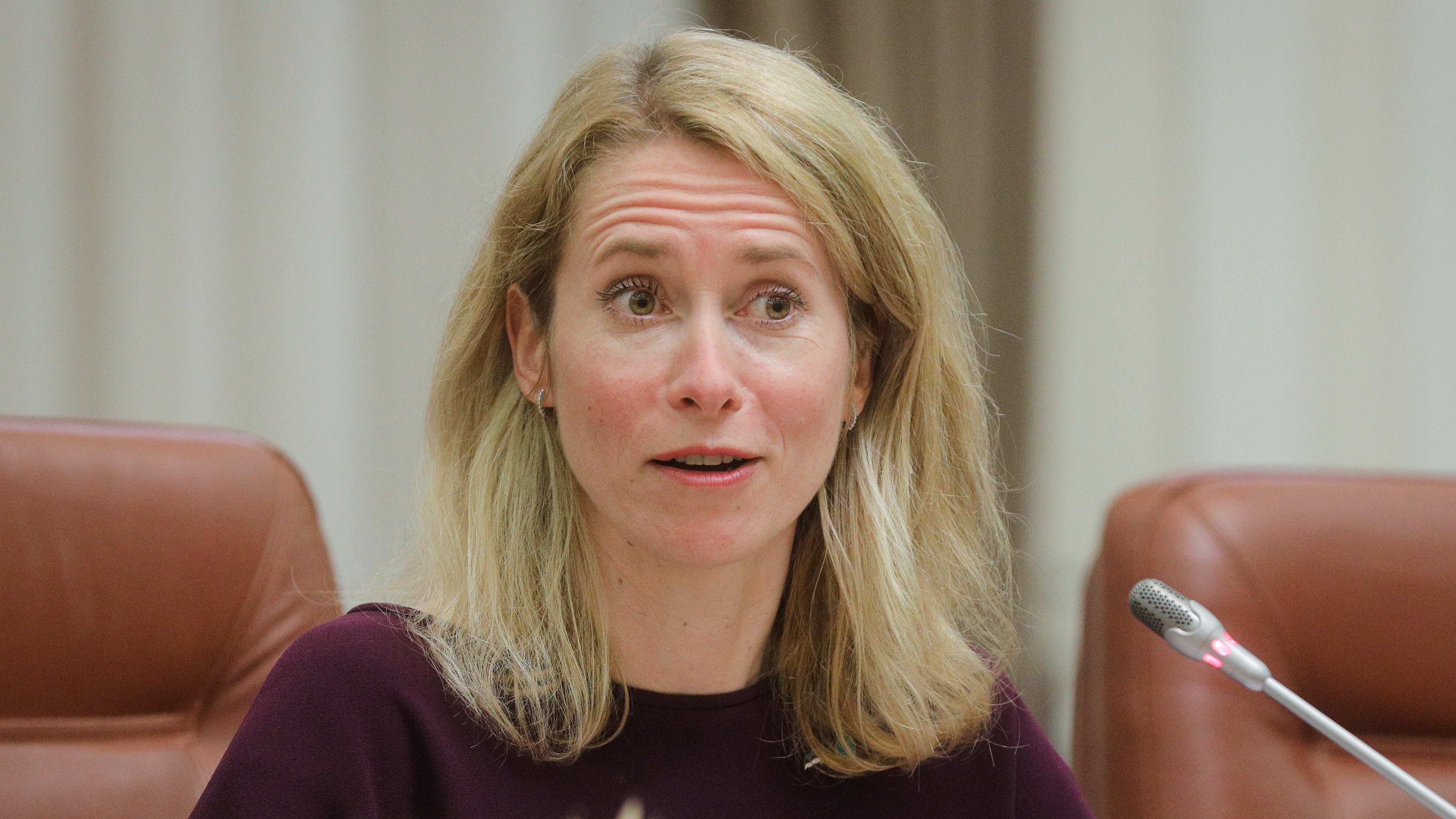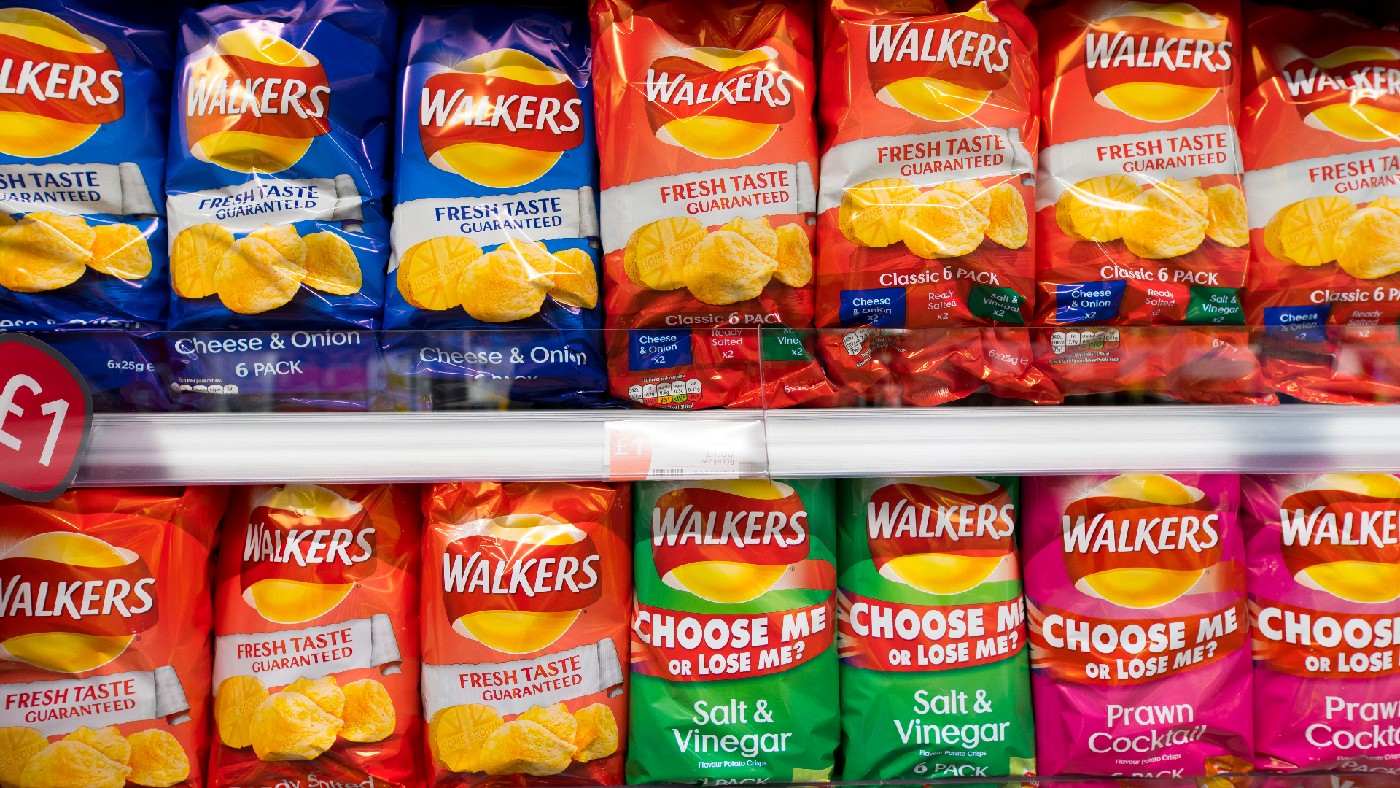Tata Steel strikes £550m deal to solve pensions riddle
Agreement will clear path for company to merge UK assets with ThyssenKrupp of Germany

A free daily email with the biggest news stories of the day – and the best features from TheWeek.com
You are now subscribed
Your newsletter sign-up was successful
Tata Steel has "in principle" reached an agreement to end the saga over its £15bn pension scheme and clear a path for a merger with German energy giant ThyssenKrupp, says the Financial Times.
"If the settlement moves to a successful conclusion, it could spell an end to the crisis in the steel industry that blew up last spring when Tata said it intended to quit Britain after years of losses," the paper adds.
Unions voted earlier this year to approve the closure of the old British Steel pension schemes, which have assets of around £15bn and offered a guaranteed payout rate based on salary, to new accrual.
The Week
Escape your echo chamber. Get the facts behind the news, plus analysis from multiple perspectives.

Sign up for The Week's Free Newsletters
From our morning news briefing to a weekly Good News Newsletter, get the best of The Week delivered directly to your inbox.
From our morning news briefing to a weekly Good News Newsletter, get the best of The Week delivered directly to your inbox.
This next step would address the trickier issue of what to do about scheme's existing members. Their accrued benefits added up to a £700m shortfall against projected assets and were costing the company £136m a year to fill.
While the bill was considered too high for ThyssenKrupp to take on, pension scheme law prevented Tata from reducing the rates it would pay to members.
This solution would see the scheme hived off into a separate vehicle into which Tata would invest £550m and 33 per cent of the UK business.
Members will have the choice of transferring into this new fund, where payments would be uprated at a slower inflation rate, or staying with the existing scheme, which would then fall into the pension protection fund (PPF), where most members would see payouts cut ten per cent.
A free daily email with the biggest news stories of the day – and the best features from TheWeek.com
Unions say the majority of members would be better off transferring to the new scheme.
"Tata said the deal was subject to approval by the Pensions Regulator and non-objection on the part of the PPF. The Pensions Regulator said important details remained to be finalised," said the FT.
Tata workers agree to close defined benefit pension scheme
16 February
Tata Steel workers have voted in favour of the company's proposal to close their generous defined salary pension scheme.
"In return for pension changes, Tata Steel has pledged to guarantee production and jobs at Britain's largest steelworks in Port Talbot, Wales, for five years and to invest £1bn in its UK business over the next decade," says Reuters.
A ballot had been open to more than 10,000 workers who are members of the Community and GMB unions for the past two weeks, says Sky News, and around three-quarters agreed to the reform.
Consequently, all new pension contributions will go into a new money purchase pension scheme, which does not guarantee a set payout and is exposed to market risk.
It should, however, help avoid the British Steel Pension Scheme "from having to be taken over by the Pension Protection Fund (PPF) lifeboat scheme", adds Sky. That would have cut payouts to existing pensioners by around ten per cent.
The deal also guarantees 4,000 workers at Port Talbot their jobs for the next five years, even if a proposed merger of Tata with German conglomerate ThyssenKrupp goes ahead.
However, the agreement - and with it the future of the steelworks in the UK - remains dependent on a bigger change to the pension scheme that would affect all 130,000 existing members.
Tata is seeking what Reuters describes as "rare regulatory approval" to cut future payouts by linking to a lower rate of inflation. It also wishes to hive off the scheme into a new company to avoid further contributions to meet a massive funding shortfall.
The company says its UK unit, which is set to post its first profit in five years, "will fail if it has to keep ploughing funds into a scheme with 13 times more pensioners than paying employees", Reuters adds.
Even if the deal does succeed, some remain unconvinced on the longer-term future for jobs at Port Talbot.
"Thyssenkrupp has said its main goal in merging with Tata's European operations is to combat overcapacity in the steel sector, and many expect this makes jobs at Port Talbot… vulnerable in the long term," says Reuters.
Tata Steel agrees £100m sale of 'speciality' business
10 February
Tata Steel has finally secured a formal £100m deal to sell its "speciality steel" arm to turnaround industrials consolidator Liberty House.
The deal brings to an end months of uncertainty for 1,700 staff across a number of Tata sites in South Yorkshire, as well as service centres in Bolton, Greater Manchester, and in China.
Upheaval dates back to March last year following the announcement that Tata was exiting the UK market altogether – and then the news that it had signed a "letter of intent" on a sale of the speciality arm in November.
In between Tata initially claimed it would only sell its UK businesses as a single asset. It later relented and split off its non-core arms, including the "long products" arm based out of Scunthorpe, which was sold last June.
The remainder of the operations, including the steelworks in Port Talbot, Wales, which has a 4,000-strong workforce, are set to be merged with German conglomerate ThyssenKrupp.
In order to facilitate that deal, which incorporates all of Tata's European steel assets, the Indian-owned firm is consulting on reforms to its UK business, including hiving off its pension scheme and limiting future payouts.
The speciality unit produces steel for the automotive, aerospace and oil and gas sectors.
In common with the improvement in the wider steel sector, it generated pre-tax earnings of £74m in the third quarter of its latest financial year, compared to a £90m loss the previous year, says the Daily Telegraph.
The purchase will make Liberty one of the largest steel and engineering employers in the UK with more than 4,000 workers across Britain, including Scottish mills that were also formerly owned by Tata.
-
 ‘Restaurateurs have become millionaires’
‘Restaurateurs have become millionaires’Instant Opinion Opinion, comment and editorials of the day
-
 Earth is rapidly approaching a ‘hothouse’ trajectory of warming
Earth is rapidly approaching a ‘hothouse’ trajectory of warmingThe explainer It may become impossible to fix
-
 Health insurance: Premiums soar as ACA subsidies end
Health insurance: Premiums soar as ACA subsidies endFeature 1.4 million people have dropped coverage
-
 Can the UK avoid the Trump tariff bombshell?
Can the UK avoid the Trump tariff bombshell?Today's Big Question President says UK is 'way out of line' but it may still escape worst of US trade levies
-
 Five years on, can Labour's reset fix Brexit?
Five years on, can Labour's reset fix Brexit?Today's Big Question Keir Starmer's revised deal could end up a 'messy' compromise that 'fails to satisfy anyone'
-
 Why au pairs might become a thing of the past
Why au pairs might become a thing of the pastUnder The Radar Brexit and wage ruling are threatening the 'mutually beneficial arrangement'
-
 Brexit: where we are four years on
Brexit: where we are four years onThe Explainer Questions around immigration, trade and Northern Ireland remain as 'divisive as ever'
-
 Is it time for Britons to accept they are poorer?
Is it time for Britons to accept they are poorer?Today's Big Question Remark from Bank of England’s Huw Pill condemned as ‘tin-eared’
-
 Is Brexit to blame for the current financial crisis?
Is Brexit to blame for the current financial crisis?Talking Point Some economists say leaving the EU is behind Britain’s worsening finances but others question the data
-
 How Brexit handed a ‘financial boon’ to former Soviet state Estonia
How Brexit handed a ‘financial boon’ to former Soviet state EstoniaIn Depth Around 4,000 companies have set up shop in member state since UK left EU, prime minister says
-
 Why the UK is suffering a Walkers crisps shortage
Why the UK is suffering a Walkers crisps shortagefeature Production issues have forced snack giant to prioritise most popular varieties